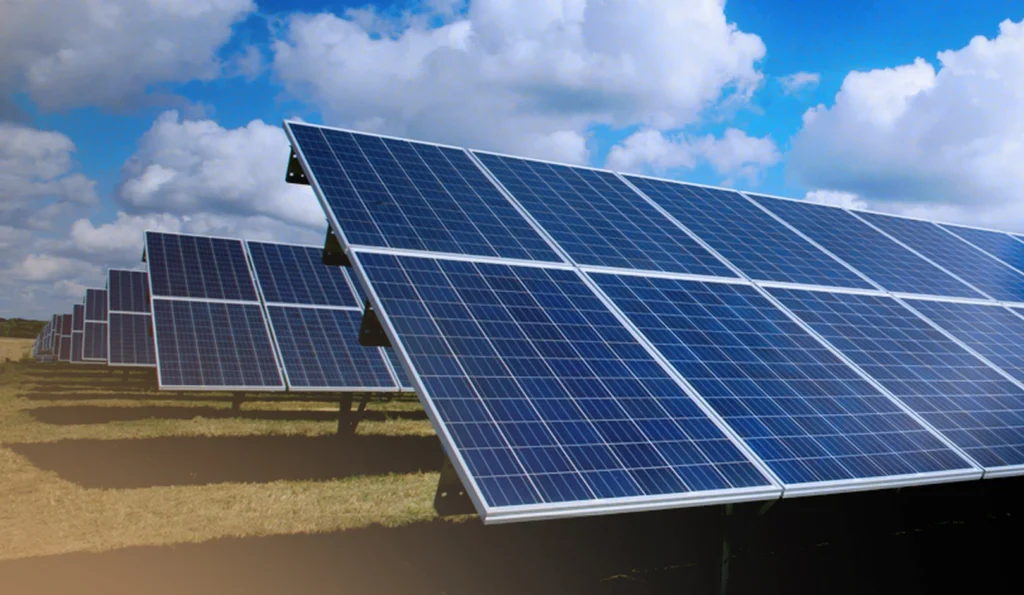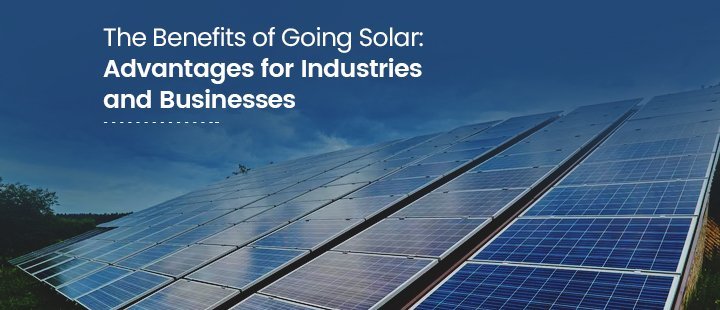Businesses in India today are under pressure to cut costs and adopt eco-friendly practices. Solar power is one of the best solutions for both. It offers long-term savings, government incentives, and helps companies become more sustainable.
Let’s explore in detail why investing in solar energy is a smart move for Indian businesses.
1. Dramatic Energy Cost Savings
Solar power brings big savings. A typical commercial rooftop solar system in India (around 10 kW) costs about ₹4–5 lakh after subsidies. This setup can generate roughly 14,600 units of electricity per year.
If you’re paying ₹8–10 per unit to the local electricity board, solar can save you over ₹1.2 lakh every year. That means you can recover your investment in just 3–4 years. After that, you get nearly free electricity for the next 20–25 years.

2. Tax Benefits and Government Support
The Indian government supports solar adoption through several benefits:
- Accelerated depreciation: Businesses can claim 40% depreciation in the first year itself.
- Capital subsidy: Some states and industrial programs offer upfront discounts.
- Lower GST: Solar components are taxed at only 5%.
- Net metering: Sell your extra solar power back to the grid and earn credits.
- Low-interest loans: Subsidized solar loans are available for MSMEs.
These policies help reduce the upfront cost and improve returns on investment.
Also Read What to Expect During a Solar Site Survey 2025
3. Energy Independence and Reliability
Many areas in India face power cuts or voltage fluctuations. Solar energy can help businesses become more energy independent. If you use batteries or hybrid inverters, you can keep your business running even during grid failures.
Solar protects your business from rising electricity prices. It lets you lock in stable, low-cost power for years.
4. Environmental and CSR Impact
Going solar helps the environment. A 10 kW system reduces about 15 tonnes of carbon dioxide (CO₂) each year.
Adopting solar energy also supports your Corporate Social Responsibility (CSR) goals. It sends a strong message to customers, investors, and employees that you care about sustainability.
5. Better Brand Image and Trust
More customers now prefer to support eco-friendly businesses. When your company runs on clean energy, it builds a positive brand image. Investors and partners also prefer working with companies that have a green vision.
Even your employees will appreciate working in a sustainable workplace. It boosts morale and makes your company more attractive to talent.
6. Flexible and Scalable Systems
Solar systems are highly flexible. You can start with a small system and expand it later as your energy needs grow.
Newer technologies like bifacial panels, smart inverters, and energy monitoring systems offer more efficiency and better control. These upgrades can further reduce costs and improve output.
7. Low Maintenance and Long-Term Value
Solar panels require very little maintenance. Cleaning them a few times a year and checking the inverter is usually enough.
Most solar panels last for 25–30 years and come with warranties. Even after your investment is recovered in 3–5 years, the savings continue for decades.
8. Supporting India’s Green Energy Goals
India is aiming for 500 GW of renewable energy by 2030. Solar is a big part of this target.
By installing solar, your business helps reduce fossil fuel dependence and contributes to national progress. It also prepares you to meet Renewable Purchase Obligations (RPOs) and future energy regulations.
Indian Success Stories
Here are a few examples of how solar has already made an impact:
- Northern Central Railway in Prayagraj saved ₹1.6 crore last year using solar power.
- Industrial zones in Uttar Pradesh are setting up over a dozen solar plants to reduce electricity bills.
- Nagpur is emerging as a solar manufacturing hub with big names like Reliance and Waaree investing heavily.
- Chandigarh has become the first city to achieve 100% rooftop solar coverage for government buildings, saving crores each year.
These stories prove that solar works and delivers results.
FAQs
Q. What ROI can I expect from solar installation for my business?
Q. Are subsidies and tax benefits still available in 2025?
Q. Can I run my business entirely on solar?
Q. How often do I need to maintain the panels?
Q. Can I sell extra power to the grid?
Conclusion
Switching to solar is no longer just a trend—it’s a business necessity. With energy costs rising and customers becoming eco-conscious, solar power offers Indian companies a chance to stay competitive, reduce expenses, and make a positive impact on the planet.
Whether you run a factory, a showroom, an IT office, or a warehouse, investing in solar today ensures a brighter, cleaner, and more profitable tomorrow.
Author- Ayush






